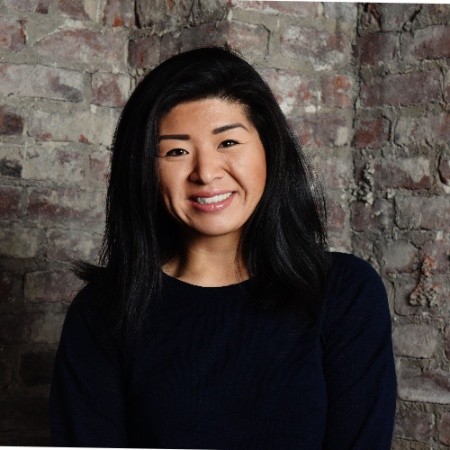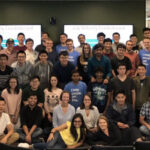 Li Shao is a math professor turned UX Developer at Indeed.com
Li Shao is a math professor turned UX Developer at Indeed.com
About a year ago, I decided to break into a new career in UX. Today, I’m a UX developer, a position that combines coding and design, a lot like a design technologist. The switch may have been the hardest thing I’ve ever done. And in the process I learned a lot, both emotionally and practically. If you’re also thinking about getting into tech, here are nine pieces of advice to help you on your way.
—
1. Not all careers last forever, and that’s OK
I became a teacher even before I finished school. It was hard but satisfying; I’ve always loved helping people on their journeys. For 12 years, I instructed students in arithmetic and calculus, linear algebra and statistics. I liked the rapport with my students, and the respect they gave me was so positive. When I first started, it was exciting to hear them call me “professor.” I thought my career was set for life.
As the years went on, though, I began to feel worn down and less motivated. I started wondering if I could continue for another 40 years. I kept thinking, “This can’t be all I can be.” It took me a while to accept that I was unhappy, and that was my first step to making a change.
2. Hold on to your inspiration and it’ll keep you going
One day, my brother came home with a take-home logic problem he was working on for an engineering job he was applying to. I had never studied coding languages or used a computer for more than email and internet access. But as he explained the challenge, the idea of using code to solve practical problems fascinated me.
In the days and weeks that followed, I realized I was still thinking about how to solve the problem. It could have just been a fun brain teaser, but it meant more than that to me. Answering these kinds of questions could be my full-time job. That was an exciting idea and it inspired me to keep going. It motivated me even in the moments when I had second thoughts about leaving my familiar teaching job for the unknown.
3. Be prepared for other people’s pessimism
Just like it can be hard to imagine yourself in a new career, it can be hard for friends and family as well. The guy I was dating at the time wasn’t optimistic about my prospects. He started asking if I was sure about getting involved in such a male-dominated industry. He would say, “It’s going to be hard for you because you’re a girl.” He underestimated me.
I had been one of only a few women in my master’s program for teaching math, so being in a male-dominated field wasn’t anything new for me. I didn’t let his worries, or anyone else’s, deter me.
4. Free resources are a great way to start learning
Up until this point, I hadn’t made any firm decisions. I knew I would be competing with people who had a lot more experience than me. I would need to get familiar with the things that mattered to coders, the terms they used, software they liked, even the keyboard shortcuts they used.
So I started tutoring myself with online videos. YouTube is free, and so are many tutorials. There are subscription services that don’t cost much. I also listened to people in the industry — friends, professionals speaking in the media and on podcasts, even people I overheard on the sidewalk. This helped me start to learn the language of tech and UX. It was also a way of testing the waters without investing too much time or money.
5. Tech boot camps help, but choose with care
Once I was confident I wanted to make the switch to a career in UX, I decided my next step would be a coding boot camp. I felt this would be my best chance to get the practice I needed to become a competitive candidate. I soon learned that not all boot camp programs are the same; there are plenty of places with poor track records.
When I looked into the program with the best recommendations, I was shocked that they asked for the $18,000 up front. That was quite a chunk of change for a part-time professor and another reason I had to choose wisely. When I made the investment I felt committed to my new career path.
6. It takes effort to learn new skills
Once I signed up for boot camp, I learned why they call it that. The work turned out to be terrifying, overwhelming, and exhausting, especially at the beginning. I was still working as a teacher and had classes to teach and students to tutor. There was no choice: I needed to pay my bills. While school closed for summer vacation, I went to boot camp for 12 hours a day, six days a week, taking extra classes to finish the program as quickly as I could.
7. Doing a little extra can make you a more competitive candidate
Boot camp doesn’t guarantee you’ll get a job. I was competing with job applicants who had full computer science degrees, which meant I needed to look for a way to set myself apart. To make up for my lack of experience, I volunteered to be a boot camp mentor after I finished the program. I could lean on my teaching skills and I gained valuable coding practice that way. It also boosted my confidence.
8. You don’t need to know everything to apply — everyone learns on the job
As soon as I dared, I began applying to jobs. A few months later, I got hired. When I opened up my first project files, I was horrified to realize I didn’t know the coding languages. For a moment I felt like I had made a terrible mistake. But my teammates assured me that continuing to learn is part of the job and a process that’s never finished. So I looked up resources, asked questions, and learned from my colleagues.
9. The payoff isn’t only your new job, it’s what you learn about yourself
Teaching had been my passion and I loved the connections I had with my students. Even though I’ve moved on to different work, those years are still part of who I am and they gave me some amazing skills I still use. I’m happy that I followed my inspiration and experienced the personal growth that comes with making a major life change. In the end, I didn’t just learn how to code — I proved to myself that I have the power to change my life.
Learn more about Indeed’s user experience team at indeed.design.
Interested in joining our UX team? Search available opportunities here.
Find out more by following life #insideindeed.



